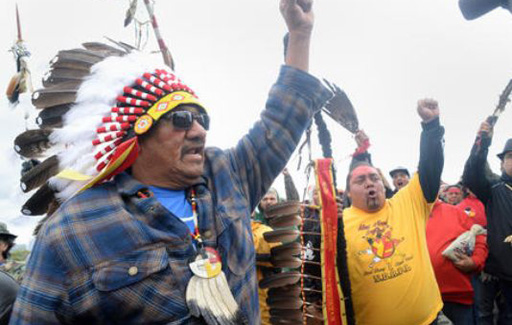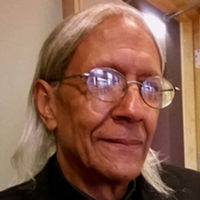
MT. JULIET, Tenn. — The 35th Annual Mt. Juliet Powwow, a few miles outside of Nashville, held September 24-25th, made the opposition by the Standing Rock Sioux to the oil pipeline in North Dakota an important issue for discussion and support. The Powwow is an annual celebration of Native American culture and heritage by American Indians in Middle Tennessee. It is typically attended by several thousand Natives and non-Natives.
But this year’s Powwow made the vexatious Dakota Access Pipeline (DAPL) a matter of great concern for both Native and non-Native at the gathering. Powwow coordinator Cindy Yahola, whom I have known for years, made sure that information was provided to those attending.
“The threat to water by an oil leak affects not just Native Americans, but every living being in this country,” said Yahola, a member of the Muscogee Creek Nation.
This writer, who had been to the protector encampments in North Dakota was asked to speak on the issue at the Powwow. A main purpose of this column is that the readers, particularly non-Natives, can be more aware of the feelings of Native Americans on the controversial pipeline and how it relates to and dovetails with historical and contemporary political matters.
After I had spoken, Powwow emcee Rob Daugherty, a member of the Cherokee Nation of Oklahoma, whom I have also known for some years, talked of the need to support the Standing Rock opposition to the pipeline. “An attack on one tribe is an attack on all tribes,” he said. “And also, an attack on water is an attack on all the people of this country.”
Daugherty announced that next in the arena would be an intertribal dance at which a blanket would be spread on the arena grounds for the collection of money to support the Standing Rock Water Protector effort. At the end of the intertribal dance, over $500 had been collected in the blanket.
There were quite a few comments, such as “This is the most racist country in the world.” This was from a friend, a Navajo who has lived in Middle Tennessee for some years and spoke of being racially profiled while driving. He sarcastically remarked “What am I supposed to do, stop by the police station and tell them where I am going every time I drive?” Sounds like apartheid, U.S. style. The same respondent said the Colonial Pipeline, which broke in Alabama two weeks ago and sent 336,000 gallons of gasoline into the rivers, was aptly named. Shades of the old colonialism.
Another commenter hoped that no harm came to the those in the encampments, to the thousands on the Cannonball River, hoping that there would not be a “massacre.” Another recalled stories passed down of the burning alive of women and children in the wars with the Army and settlers. The issue of DAPL dredged up stories handed down through Native families of atrocities committed by the government and invading white settlers. Every tribe and every Indian family has “war stories” to recount. Discussions of DAPL brought all of this to the surface once again.
A Lakota friend of mine from Pine Ridge, now living in the South, recounted that a friend of his, a young Choctaw woman, wanted to drive to Standing Rock to teach the children in the encampments. He advised her against traveling alone because that was “rough country,” dangerous for Indians. Fortunately, she made it okay. That reminded me of traveling from Bismarck to Standing Rock and passing a young Native couple walking along the road, just minding their own business, next thing I knew looking in the rear view mirror they had been stopped by state troopers with blue lights flashing.
In conversations at the Powwow, more than one person expressed the fear that the Standing Rock opposition to the pipeline was probably going to get “ugly.” There was anxiety that the authorities, using the National Guard and county and state officers, would initiate violence against peaceful demonstrators and against the encampments.
There was a general feeling, this was not just among Natives, that the courts and the national government had been taken over by the corporations, big business, the oil magnates. The question was raised of how to break the stranglehold the corporations have on the country.
These conversations also brought to mind my first day at the Oceti Sakowin camp on the Cannon Ball river. In talking with one of the attorneys she said that all the people there were “suffering from PTSD” as a result of the centuries of oppressions and massacres committed against Native People by the government. Many were apprehensive that something very bad could happen, but again this violence would not come from Indian people (remember the massacre at Wounded Knee was perpetrated some miles away in South Dakota). The people in the encampments remained committed to peaceful, non-violent protest.
All of these thoughts loomed large in the consciousness of those attending the Powwow reflecting upon the tragic history and heroic resistance of American Indian people that palpably continues to this very day, magnificently exemplified by the Standing Rock Water Protectors.
Photo: Will Kincaid/AP

MOST POPULAR TODAY

Zionist organizations leading campaign to stop ceasefire resolutions in D.C. area


High Court essentially bans demonstrations, freedom of assembly in Deep South

Afghanistan’s socialist years: The promising future killed off by U.S. imperialism

Communist Karol Cariola elected president of Chile’s legislature



Comments